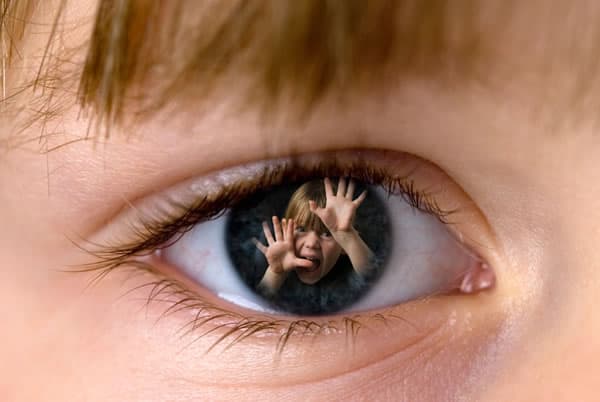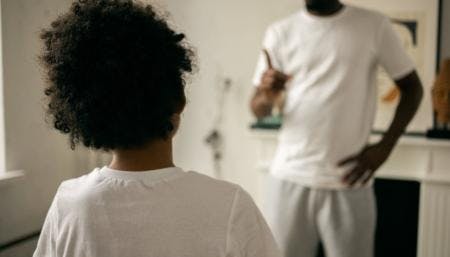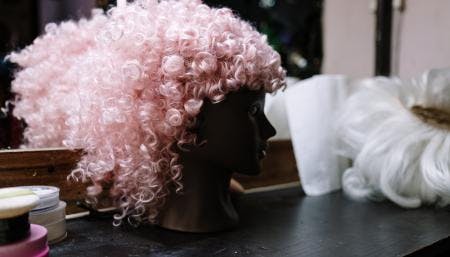Forgotten: My Daughter Is Mentally Ill
8 Min Read•June 22, 2015•Janna Vought

Kamryn’s raging. It’s another day on the forefront of battle—a quest for my child’s soul. Hatred spews forth from her mouth, an eruption of unbridled anger. Her screams are deafening, so disturbing that our dogs flee for cover at the slightest elevation of her voice. Her anger is inconsolable and unrelenting, an endless cycle of torment and tears—pain’s treasures. You see, my daughter is mentally ill.
I stand quietly in the kitchen, a silent observer to her tirade, a string of commands flowing through my head: make sure she doesn’t hurt herself, is there anything near that she can break, stay calm and don’t respond. I am a veteran of this war, having logged time against her weaponry for years. I know her cycles, I play her twisted games; I stand against a barrage of assaults, protecting my husband and younger daughter. No medals hang from my chest, a hero’s celebration never will surpass. I am simply a mother, a keeper, a witness to the unyielding force of disease.
Hello, my name is Janna, and my daughter is mentally ill.
It seems so foolish to utter those words, brandishing them in defiance; the scar of an old wound that refuses to heal. I am unashamed of my child; she is a creation of love. However, I cannot help but feel defensive, for I have faced the scrutiny of others. A cold glance in a store from others as they watch Kamryn writhe on the floor in protest over not getting the toy she wanted. Whispered barbs from patrons who sit at a restaurant and watch my daughter display her affection for food with groans of delight. Perhaps such overt actions would not bother the mother of a two-year-old, for such conduct is reasonable for the maturity level of a toddler; my daughter is twelve. I have watched the steady demise of my child over the past six years, a slow progression into the malignant abyss.
Her eyes were not always dulled to the illumination of joy. The smile that once parted her face with laughter now grimaces in contempt. The tiny child who clasped my hand in hers, gazing into life with wonderment, now refuses my touch, sickened by contact with any living soul. My heart aches for her return. My eyes close to the memories of the child placed in my embrace on angel’s wings, a flutter of breath against my breast as she inhaled the deliciousness of existence, a velvet sigh drenched in content, tomorrow’s possibilities poised upon her lips—gone.
I retreat to my thoughts of yesterday, shelter from the madness, and remember my child. Gone are the days of hope, replaced with the cruelty of mental illness. My daughter gone, I am left to endure the tragedy of her existence, loving her from afar.
The diagnosis came as no surprise, for we had been coping with her abnormalities for over two years. The therapist attempted to coat the revelation in psychoanalytical jargon, surrounding the devastation with clinical severity. She sat poised behind her desk, a barrier between her world of benignity and ours. We had divulged the secrets of our shameful existence to this stranger, souls trapped in Hell seeking communion in the holy realm of psychiatry. She offered us forgiveness of our parental sin, the humility attached to being the parent of a mentally ill child.
Do not deny the revulsion felt at the sight of a filthy, half-clothed man shuffling down the side of the road, mumbling incoherencies to the voices in his head. Clutch your bag closer to you as you pass, pull your child closer to your side, wonder why such an abomination of humanity is allowed to roam the streets unsupervised, assaulting society with their shocking malformed mind. Remember this man by who you are repulsed, this caricature of insanity, is human at heart, a living being of flesh and bone born to parents who perhaps loved and cherished him, showered him with affection and praise; then the darkness came, creeping slowly into the corners of his thoughts, consuming his soul with shadows of lunacy, until one day he was gone, his family devastated by the loss of his soul.
I love my daughter, as does my husband, yet there are times when the strain of coping with her illness is more than we can bear. In the blanket of darkness, I submit to my shame, flowing images of my life before her wash over me, satiating my appetite for normalcy; then reality takes hold, and I remember my daughter, innocent in her existence, and I am racked with guilt and grief. Despite what is laid before us, I will never leave her side.
At times it feels as though Kamryn has become a personification of her illnesses, a stereotype assigned by a culture biased against the mentally ill. Kamy suffers from bipolar disorder and Asperger’s Syndrome, a developmental disability that falls along the Autism spectrum. She is also plagued with debilitating anxiety. The symptoms of her illnesses range from incidental to the extreme.
Every day for us is the same, repetition of actions that sooth her need for consistency. People assume that I am raising Rain Man, for our culture is so fixated upon that which is presented in popular culture and the media as the truth. My daughter is not a character in a story, but an individual who suffers from illnesses that consume her thoughts and chase away her dreams. Her brain chemistry is so convoluted that only the strongest psychotropic medications can quell the fires of madness that seek to consume her. Kamryn is violent and aggressive, physically abusive to both her sister and father. She hears voices and noises that are not real and witnesses visions of transparency. Each day, Kamy is reminded that she is not suffering from the myriad of maladies from which she believes she is suffering, ranging from brain tumors to scarlet fever. She has been deemed so severely ill that she receives Social Security income and Medicaid at the sagacious age of twelve. We live with the constant reminder of our loss, witnessing each day the consumption of our child.
This story is not meant to invoke pity; no telethon or organized walk will bring back my daughter’s light. I tell my tale for the forgotten, those families who fight in the trenches alongside mine. We are the lepers of modern society, a secret sect of the damned—parents of the mentally ill. The American culture lives in fear of mental illness, hiding the evidence of its existence. We live in a reactive society, poised to respond in the event that harm is done or a crime committed. I have been told countless times that ultimately my daughter will end up either committed, incarcerated, or dead. We are told that there is no hope for an individual such as herself, that she is destined for failure; therefore, any programs of intervention are nonexistent barring an incredible amount of wealth that can buy her way into a swank halfway house or residential treatment center.
My daughter is not significant in the eyes of her community because of her illnesses. If she was plagued by leukemia or diabetes, people would flock to champion her cause, but her disease is intangible, a spectral force that others fear. I say these words not to take away the suffering of parents whose children must endure physical illness, but because those parents of the mentally ill deserve the same amount of attention and support as well. We desire more than the anesthetizing of our children with medicinal concoctions. We want more for their lives than an existence behind bars or confined to windowless walls. We fear their death to suicide, alcoholism, or drug overdose; we envision their victimization at the hands of predators, tantalized by their smell of vulnerability. Our voices fall silent at the feet of our communities. We weep in isolation, support nowhere to be found.
The number of families that suffer in silence is shocking, confined to obscurity’s seclusion by the authoritative arm of ignorance. Informational systems are clogged with callous diagnostic books and journals, yet the utterances of the ill and their families are lost. Now and again, a story of a mentally ill person committing horrific crimes will surface in the media, further solidifying societies vision, yet never is a headline run on the success of an individual who suffers from schizophrenia opening an art show or a bipolar adolescent being accepted into Harvard. It is not that these occurrences are not possible, but the stories are never heard for such a display of positivity would directly contrast the assigned stigma attached to the mentally ill.
My daughter will never recover from her diseased mind. We have come to terms with the notion of our altered life. The chances that she achieves prosperity in her future are small, partially because of her illnesses, but also because of the insurmountable odds placed before her by those who do not even know her name. My daughter is fated to become a statistic, a number in the records of regulatory agencies that dole out her income because they have labeled her as unable to function in life. She is a diagnosis to the psychiatric profession, a subject to be studied and experimented upon, running her through the maze of existence to determine how she responds. My daughter is an atrocity, a mar on the pristine image of the American culture.
She is my child, my spirit, my love, my joy. Kamryn is bright, artistic, witty, and quirky. She is exactly as God intended, flawed in her perfection. I will never cease in my pursuit of her dreams, for although she is not capable on attaining her goals alone, the magnitude of her possibility is immense with her family’s support and care.
Remember the child, radiant in her blithe; an image of divinity—she exists within.




